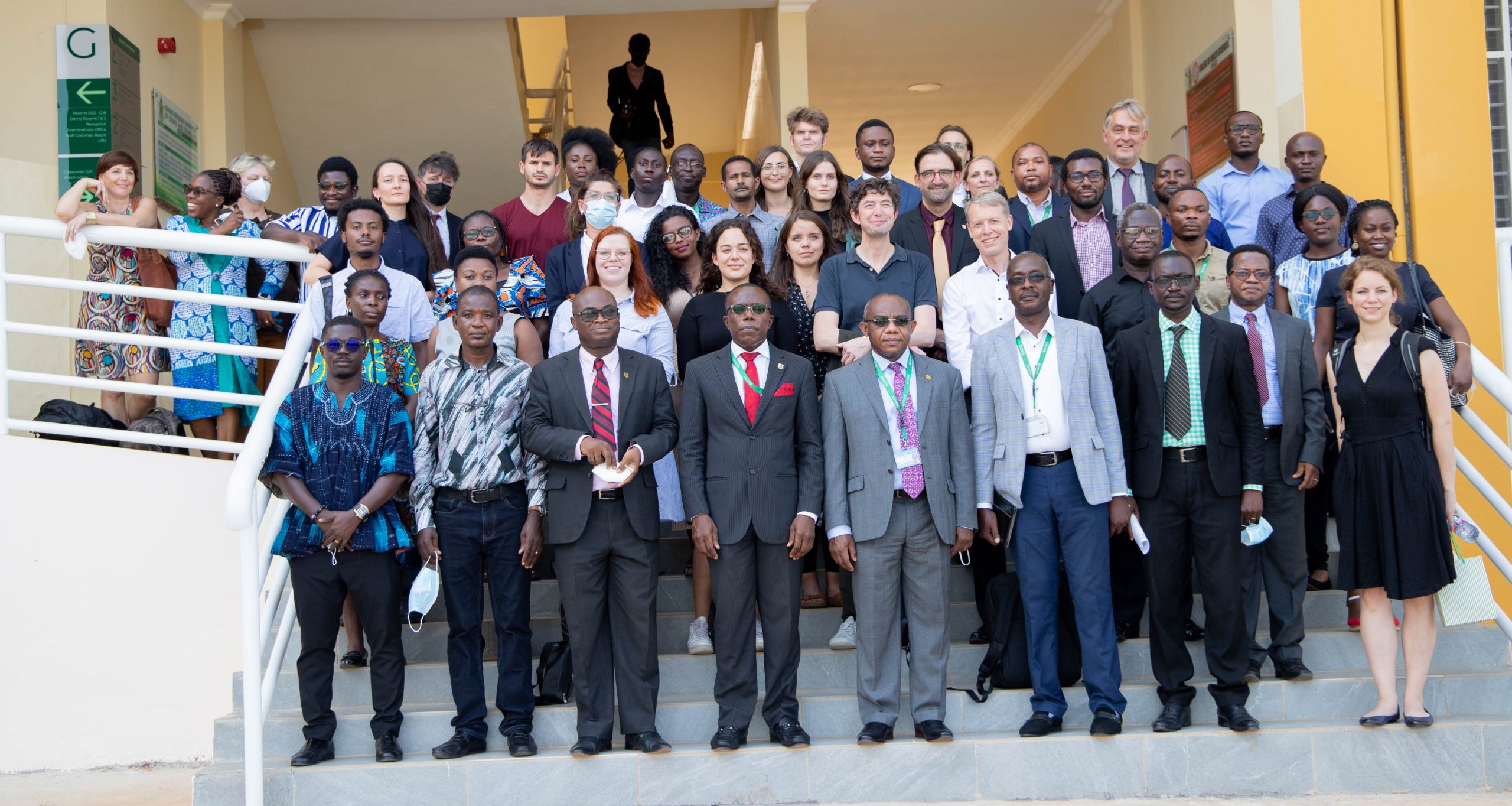The Kwame Nkrumah University of Science and Technology (KNUST) is hosting the German-West African Centre for Global Health and Pandemic Prevention (G-WAC) within the College of Health Sciences in Kumasi, Ghana. The G-WAC project officially began on May 01, 2021 with close to 2.8 million EUR in funding from the German Academic Exchange Service (DAAD). G-WAC is one of the eight new DAAD-funded Global Centres for Climate and Health to be established across low- and middle-income countries to address global challenges with a commitment of approximately 22 million EUR in funding from the German Foreign Office from 2021 to 2025 (with a possibility to extend to 2030).
The aim of G-WAC is to establish a German-West African Centre for Global Health and Pandemic Prevention based at the KNUST-College of Health Sciences in Kumasi, Ghana, that will address the existential threat of global pandemics to the health and welfare of people through trans- and inter-disciplinary research projects targeting both the main drivers of pandemics (e.g. health impact of wild habitat encroachment, extensive agriculture and climate change, spillover of pathogens from wild animals to humans) and the key pillars of resilient health systems in the WHO framework (e.g. effective governance, sustainable financing mechanisms, appropriate human resource capacity, availability of essential medicines and technology, reliable health information, and responsive health service delivery) using One Health approaches.
Among other things, the innovative exchange programmes for postgraduate training which G-WAC is establishing will provide at least 14 doctoral training opportunities across disciplines. G-WAC also offers study and research stays at the partner institutions in Ghana and abroad to master’s students and other young scientists. The Centre is also establishing a West African policy dialogue on topics relevant to Global Health, Pandemic Prevention and One Health.
G-WAC draws on international experience and expertise of three main partners and a broad international network:
- College of Health Sciences, Kwame Nkrumah University of Science and Technology (KNUST)
- Berlin School of Public Health, including Technische Universität Berlin (TUB) and Charité Universitätsmedizin – Berlin
- Medical Faculty and University Hospital Bonn (UKB)
The partners contribute complementary expertise in health systems (health economics), virology (diagnostics), bacteriology (parasitology), epidemiology and surveillance, community engagement (social sciences), digital health, and zoonoses. The partners have strong collaborative ties with FU Berlin (Institute of Social and Cultural Anthropology and Institute of Microbiology and Epizootics) to broaden the research scope of the centre in areas, which are increasingly recognized as critical to generate knowledge to inform the development and implementation of interventions addressing pandemic preparedness from a “One Health” perspective. Furthermore, the Robert-Koch Institut (RKI) will contribute practical expertise and experience to facilitate the transfer of research results into policy and practice and vice versa. Finally, the London School of Hygiene and Tropical Medicine Berlin (LSHTM) will contribute its broad expertise and networks. G-WAC involves a variety of international stakeholders (research, policy, society); starting with over 20 partners.










